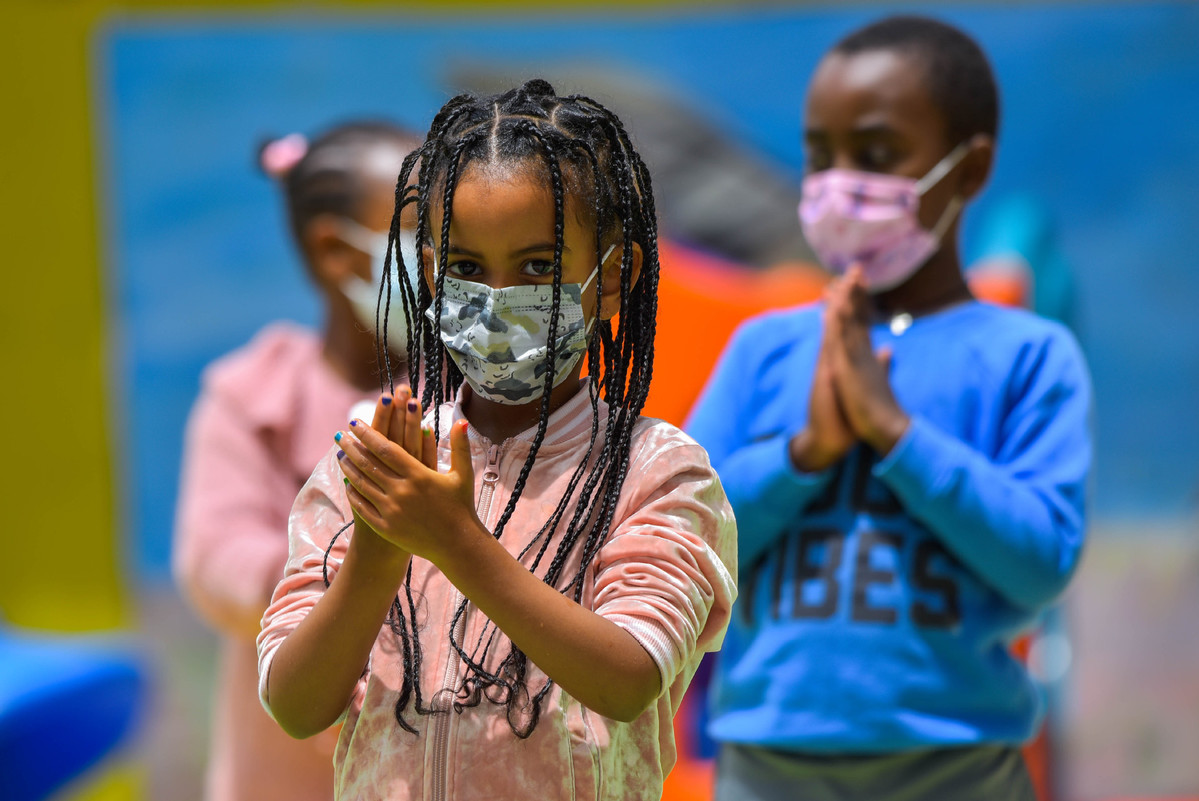More vaccines land in Africa as WHO fights misinformation about inoculations


Ethiopia received over 2 million doses of the AstraZeneca vaccine through the COVAX facility on Sunday. The delivery is part of the first wave of arrivals of COVID-19 vaccines in Ethiopia that will continue in the coming weeks.
While receiving the shipment, Boureima Hama Sambo, WHO representative to Ethiopia, said they are very pleased that Ethiopia is receiving its first COVID-19 vaccine doses.
"Thanks to the work of the government of Ethiopia and of the COVAX partners, and with the support of our donors, we're delivering on our promise to begin vaccinating vulnerable populations around the world," Sambo said.
"The arrival of the vaccines in Addis Ababa is a major milestone, a turn of the tides for the better, in the response to the COVID-19 pandemic, thanks to the coordinated global action for equitable vaccine distribution," he added.
Sambo also said that the WHO will continue to work with the government of Ethiopia and global partners to ensure that Ethiopia receives, deploys and administers adequate quantities of COVID-19 vaccines to the Ethiopian people, because no one is safe until everyone is safe.
Elsewhere, Uganda received its second donation of COVID-19 vaccines after the government of India donated a consignment consisting of 100,000 AstraZeneca vaccines on Sunday. The vaccines arrived at the country's Entebbe International Airport just a day after the arrival of the first consignment through the COVAX facility, consisting of 864,000 AstraZeneca vaccines.
Uganda is expecting another donation of 300,000 vaccines from China and 2.6 million vaccines from the COVAX facility. Sunday's delivery brings to 964,000 vaccines that have so far arrived in the country. While receiving the vaccines, Jane Ruth Aceng, Uganda's health minister, said the country is ready to start vaccinating all priority groups.
"We are now set to launch the vaccination program for high priority groups scheduled for next week. We encourage the eligible population to embrace vaccination so that we can reduce COVID-19 severe cases and deaths," Aceng said.
Meanwhile the World Health Organization has released a statement condemning the spread of misinformation about the vaccine in neighbouring Kenya. This is after a Catholic doctors' lobby advised church members not to accept the COVID-19 vaccine but instead practice steam therapy if they are sick.
However, their advisory is not an official position of the church and runs against a review approved by Pope Francis, who received a vaccine in January.
In a statement released on March 5, the WHO reiterated that the COVID‐19 vaccines are an additional critical tool of protection in our hands, in addition to what we already have and can do, including the protective measures of washing hands, keeping distance and wearing the mask.
"We would like to reiterate and assure the public that this vaccine and others recently developed are safe. They have indeed been developed and produced in record time, but the regulatory and scientific reviews of the vaccines have not been compromised. The AstraZeneca vaccine produced by the Serum Institute of India and now being distributed in Kenya has been reviewed and found safe, not only by the WHO rigorous process but also by several stringent regulatory authorities," the WHO said in the statement.
"We appeal to the Kenyans who will receive this vaccine as part of the priority group to accept the vaccine as a recommended and effective tool against the virus. The vaccine is being offered to the Kenyan public on a voluntary basis, no one will be forced to take it."
































